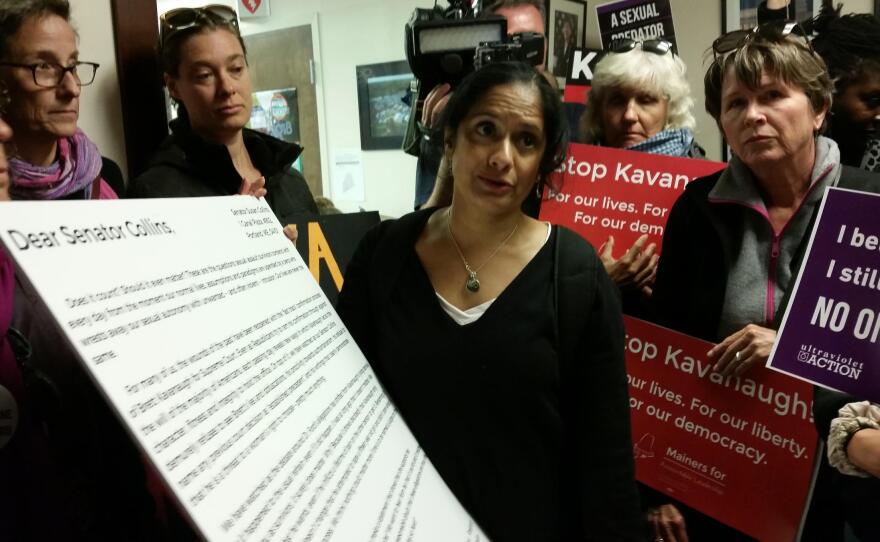Politics may be hugely divisive these days, but there have been times when divergent groups worked together on common goals.
A book by Smith College sociologist Nancy Whittier, "Frenemies," looks at the unlikely alliance of feminists and conservatives over such issues as pornography and sexual violence.
Whittier says that three decades ago, feminists and conservatives came together over domestic violence and other violence against women -- but only after it was accepted as a criminal justice issue.
Nancy Whittier, author/professor: The 1980s, when I was in college -- when Brett Kavanagh was in college -- that's sort of the period at which there was a big feminist outpouring of activism around what we called "date rape" and now call "acquaintance rape." You know, [at] the beginning of the 1980s, the broader culture didn't really define date rape as rape. But by the end of the 1980s, there was pretty broad agreement on that -- not universal, but pretty broad.
Karen Brown, NEPR: How did these groups deal with being on the same side of an issue, but so opposed to each other in so many other issues? Did that help bring them closer to understanding each other more broadly?
No -- that's the short answer. No, it really didn't. It's a huge dilemma for both sides, because their reputations are on the line. If conservatives look like they are agreeing with feminists, that's a big problem for them. And similarly, if feminists look like they're agreeing with conservatives, that's a big problem. It's always been a big problem, but it's especially intense over the last decade, with the political polarization.
So in the past 10 or 20 years, how have these alliances evolved? There is a really growing political divide. So I wonder, are these unlikely alliances an oasis in that divide, or are they another casualty of it?
It certainly appears that the alliance around sexual violence is in flux, and may be breaking down. I would say that started in the 2012 election, when by unfortunate coincidence the Violence Against Women Act was up for reauthorization during that election, and Republicans for the first time opposed it. It had always passed with nearly unanimous support before. And Trump's campaign and the election has just intensified that.
I think Republicans had believed that there was a political price to be paid for appearing to be insensitive to survivors of violence. And Trump's election kind of disproved that. I think the Kavanaugh hearings -- I think Republicans must be trying to figure out: will they pay a political price for appearing to us to not support survivors?
What are you seeing in the discourse over the confirmation hearings of Supreme Court nominee Brett Kavanaugh, who has been accused of sexual assault? You'd think that conservatives and feminists would be equally alarmed by the accusations. But does that appear to be happening?
Conservatives are walking, or trying to walk, a fine line. They don't want to appear disrespectful to Dr. [Christine Blasey] Ford, who testified about her experience of sexual assault by Kavanaugh. They have still accepted the basic terms of the argument: sexual violence is a bad thing.
But at the same time, they are trying to figure out whether they can nevertheless discredit that specific account, or proceed to support the nominee, regardless.
Democrats also are trying to use the issue politically, and I think Democrats have assumed that a charge of sexual violence is sort of an ace in the hole -- that if substantiated, that would sink the nomination, because that had been the case prior to the election. But I don't think it's necessarily clear that that's the case, either.
In addition to how conservative politicians might be in a bind in these kinds of issues, what's happening with conservative women?
Conservative women are also in a bind, partly because sexual violence is an experience that cuts across political lines. So there are lots of conservative women who have had this experience [of sexual assault], or know others who have had this experience.
Conservative women, I assume, are not just talking to [Senator] Jeff Flake. I assume they're talking to other men in their lives, and really grappling with -- how do you bring visibility to this issue, and support the idea that it should be taken seriously, when your preferred Supreme Court justice is kind of caught in the middle?










